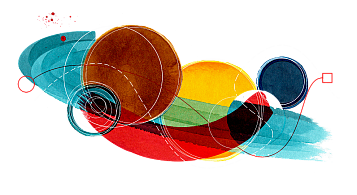This kit is a starting point for those who believe in the power of information as evidence but who recognise that working with information does not necessarily lead to immediate results or desired changes. The investigative process itself can be time consuming, demanding, tiresome and even dangerous; but it can also turn a curious individual or an incidental witness into a skilled documentarian, researcher or activist. We see investigation as a journey in the literal sense, but also in the broader sense of what it can achieve and the impact it can have on the investigator.
Our small team at Exposing the Invisible has been actively experimenting with ways to promote investigation as one of the most important forms of engagement – not only political engagement, but engagement understood much more broadly, in the sense that every action is an important step toward the goal of wider public participation. Our reason for doing this is simple. We want to help people develop the ability to question information that is false, find information when it is scarce and filter information when it becomes overwhelming. We see this set of skills as a way to counter the suppression of opinions, bypass censorship, combat excessive secrecy and increase transparency so that people can rely on facts rather than opinions and assumptions. We all need the ability to assess the weight and seriousness of the narratives that are shaping our decisions and our sense of justice, and we should all be capable of differentiating between information that is misleading and information that we can rely on.
From the outset, we have been interested in finding ways for people to expand their own unique skill sets, including the techniques they have developed by mastering their devices or by inhabiting particular digital and physical spaces. We did not want to limit ourselves to digital environments and data driven practices. We wanted to shed new light on effective ways to document issues, find information and verify facts. In short, we put our faith not in technology or data but in information and knowledge.

Who is The Kit for?
The Kit is meant for everyone. It does not matter what skills you may or may not have; it does not matter if you are just thinking of starting your first investigation or if you have already carried out several. As long as you have questions and curiosity, this is the kit for you.
This kit is issue-agnostic. It is not intended only for those who are challenging corruption or abuses of power. We believe that change happens all the time and everywhere. Neither the scope nor the scale of your investigation matters. Spending some time here will be worth your while even if all you are challenging is your own assumptions. This is meant to be a place where you can refine your thinking and determine how to go about your work in a thorough, step by step manner. The Kit is also a work in progress. We are developing additional content that we will publish in the weeks and months to come.
This kit promotes ethical and safe ways to seek answers, gather evidence and bring new narratives to the forefront. We encourage curiosity and creativity – or, as we call it in Exposing the Invisible, “seeing sideways” – and we acknowledge that these virtues sometimes require a great deal of patience. Based on our own experiences and those of our peers, we are under no illusion that any of this is easy. Turning information into evidence, then into knowledge, then into wisdom or justice requires time, effort, persistence and courage. But we believe these transformations are necessary. Investigating the issues that define our here and now, as well as our future, is vital if we want to remain engaged, active and most importantly, aware.

Who is behind this kit?
Tactical Tech launched the Exposing the Invisible project nine years ago with one simple goal: to showcase investigations that are outside the realms of journalism and law enforcement. Since then, we have made a number of documentary films, recorded hours of interviews, collected and analysed tools and tactics, run several trainings and workshops and hosted two larger events – a Data Investigation Camp, in 2017, and a ‘Kit’ Residency one year later, which gave us a starting point for this resource. Both the concept and the content of this kit owe much to many. Please visit the Credits section for more details.
Please contact our team with feedback, questions, suggestions for additional content or intentions to collaborate on expanding the Kit by writing to eti tacticaltech [ punto ] org.
tacticaltech [ punto ] org.
Exposing the Invisible team: Chris, Laura, Marek, Wael
